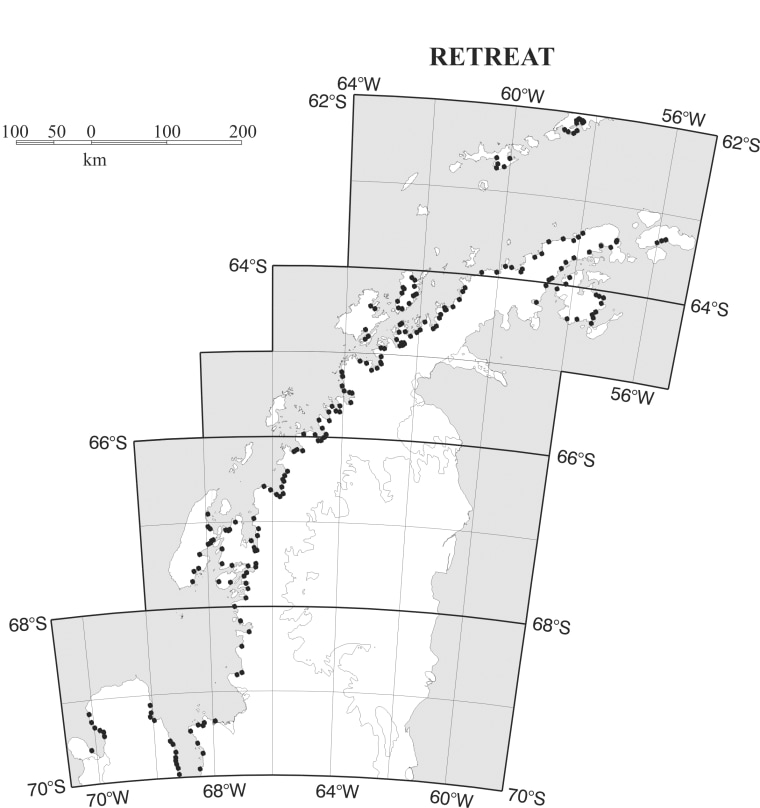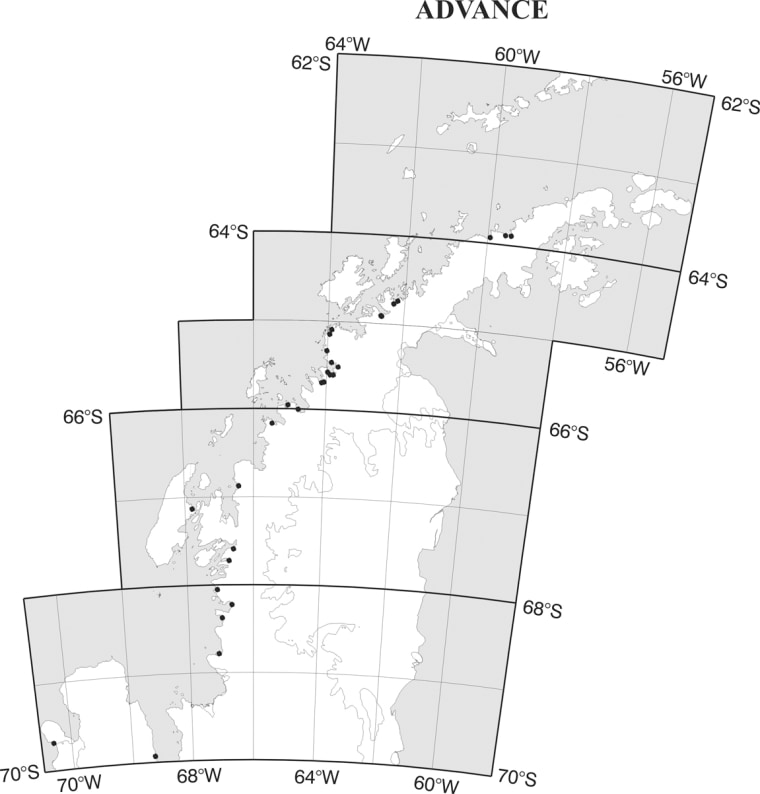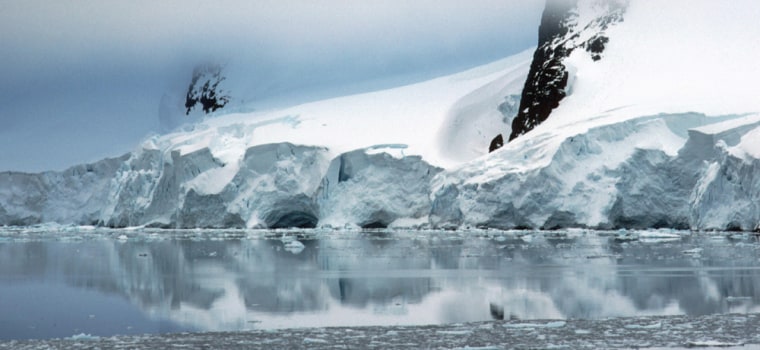A new study of glaciers in a portion of the Antarctic finds that 84 percent of them have retreated over the past 50 years in response to a warmer climate.
The work was based on 2,000 aerial photos, some taken in the 1940s, and satellite images. The climate in the region has warmed by more than 4.5 degrees Fahrenheit (2.5 Celsius) in the last 50 years, the scientists said.
"The widespread retreat of the glaciers on the Antarctic Peninsula over the last 50 years was largely caused by climate change," said David Vaughan of the British Antarctic Survey in Cambridge. "Are humans responsible? We can't say for sure, but we are one step closer to answering this important question."
The findings mirror similar changes seen in other parts of the Antarctic and in the Arctic, too.

The study, led by the survey's Alison Cook, is detailed in Friday's issue of the journal Science. Among the most comprehensive surveys ever done, it looked at floating glacier-ice shelves, which are connected to the land-based glacier from which they flowed, and tidewater glaciers that rest on land and break off into the ocean when they reach the water.
Of those that retreated, the average retreat was 1,970 feet (600 meters) since 1953. The Sjogren Glacier retreated 8 miles (13 kilometers) since 1993.
A small number of glaciers advanced, on average 980 feet (300 meters).
Ocean temperatures may also play a role in the retreats, but there is no solid data on how those might have changed, the researchers said.

Glacial retreat is a complex phenomenon that often involves thinning of the glacier, too. As glaciers melt, they sometimes move toward the sea more quickly, exacerbating the melting. Where a glacier meets the sea, an ice shelf can hold it back. When those ice shelves break apart, however, a glacier can become a runaway.
Further loss of the ice shelves that restrain inland glaciers could contribute to future increases in the rate of sea level rise, the researchers say.
Whether the planet is actually warming has been controversial. Last fall, however, two separate reports concluded that Earth's overall climate has warmed by about 1 degree Fahrenheit since 1900. A separate recent study said that regardless of what humans do or don't do, the world's oceans are destined to rise at least 4 inches (10 centimeters) in the next century because of climate wheels already in motion.
Half a century ago, most Antarctic glaciers that flowed from the mountains to the sea were slowly growing in length, Cook said, "but since then this pattern has reversed. In the last 5 years the majority were actually shrinking rapidly."
